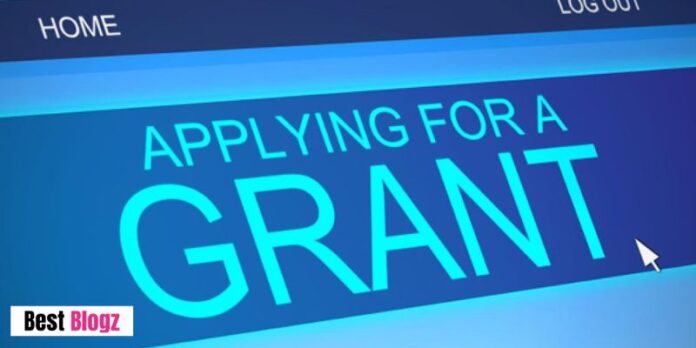When searching for funding to pursue an educational opportunity, applying for a government grant may be the solution. Government grant are a great way for individuals, businesses, and non-profit organizations to receive funding for various purposes. These grants can help support projects and initiatives that benefit the community and contribute to the development of society as a whole.
However, the competition for these grants can be high, so it is important to understand how to apply for a successful educational government. Applying for a grant can be a complex and time-consuming process, but if done correctly, it can result in significant financial support. In this article, we will provide a brief overview of the steps involved in applying for a successful government.
Step 1: Identify the Type of Grant You Need
There are many types of government grants available for educational purposes, including grants for college, graduate school, and research. It is important to understand the different types of grants that are available and which ones are suitable for your needs. For instance, if you are pursuing an undergraduate degree, you may look into the Federal Pell Grant program. On the other hand, if you are a graduate student, the Federal Teacher Education Assistance for College and Higher Education (TEACH) Grant program may be more appropriate.
Step 2: Research Available Grants
The first step in applying for a government is to research available grants that align with your project or initiative. You can start your research by visiting the website of the government agency that is offering the grant. For example, if you are looking for grants related to scientific research, you can visit the website of the National Science Foundation (NSF) or the National Institutes of Health (NIH).
Additionally, there are various grant databases available online that can help you identify relevant grants. When researching grants, pay attention to the eligibility criteria, deadlines, and requirements for each grant. Make a list of grants that seem like a good fit for your project and prioritize them based on their relevance and the likelihood of success.
Step 3: Research Eligibility Requirements
After determining the available grants, research eligibility requirements for each grant. Grant eligibility can vary from grant to grant and it is important to carefully review the requirements to ensure you are eligible before the application process begins. For instance, the Federal Pell Grant program requires applicants to demonstrate financial need based on the information provided on the Free Application for Federal Student Aid (FAFSA).
Step 4: Complete the FAFSA
To be eligible for most grants, you need to complete the Free Application for Federal Student Aid (FAFSA). The FAFSA is used to determine the student’s eligibility for various types of financial aid, including grants, loans, and work-study. It is important to complete the FAFSA as soon as possible after January 1st, as some grants are awarded on a first-come basis.
Step 5: Gather Required Documents
Most grant applications require several supporting documents, such as a tax identification number, a project budget, and letters of support from partners or stakeholders. Make sure to read the grant application carefully to identify all of the required documents and gather them well in advance of the application deadline.
You may also need to register with the grant-making agency before you can submit your application. Some agencies require applicants to register with the System for Award Management (SAM), which is a government-wide database of vendors and suppliers. Other agencies may require applicants to register with Grants.gov, which is a centralized database of federal grant opportunities.
Step 6: Write a Strong Proposal

Once you have identified a grant that aligns with your project, the next step is to develop a strong proposal. A grant proposal typically includes an executive summary, a project description, a budget, and a timeline.
The executive summary should provide a brief overview of your project, including the goals, objectives, and expected outcomes. The project description should provide more detail about the project, including the methodology, research questions, and expected results. The budget should outline the expected costs associated with the project, including personnel, equipment, and other expenses. Finally, the timeline should provide a detailed schedule of the project activities, including milestones and deadlines.
When developing your proposal, make sure to address all the requirements outlined in the grant application. Use clear and concise language and provide evidence to support your claims. Consider enlisting the help of a professional grant writer to ensure that your proposal is well-written and meets all of the requirements.
Step 7: Submit Your Proposal
After completing your proposal, submit it before the deadline. Some government grants require electronic submissions while others require hard copies. Make sure to submit your application well in advance of the deadline to ensure that it is received on time. Most grant-making agencies have strict deadlines, and late applications are usually not accepted.
When submitting your application, make sure to follow all of the instructions provided by the grant-making agency. Some agencies require applicants to submit their applications electronically, while others may require hard copies or a combination of both. Make sure to label all of your documents clearly and include a cover letter that summarizes your proposal and highlights the key points.
Step 8: Follow Up On Your Application
After submitting your proposal, follow up regularly to know the status of your application. It may also be useful to make any adjustments to your application based on comments you receive.
Conclusion
Government grants can be an excellent way to pay for your education, but the application process can be complex and competitive. By identifying the right grant, meeting the eligibility requirements, writing a strong proposal, and submitting it on time, you can increase your chances of being awarded the funds you need to pursue your educational goals.
The process of applying for a grant requires careful planning, research, and attention to detail to ensure that the proposal meets the criteria and priorities of the funding organization. Once a grant is awarded, it provides not only financial resources but also opportunities for collaboration, networking, and recognition within the field. Additionally, following up on your application can make a significant impact on your application’s success. Remember, persistence is key when applying for educational grants.




